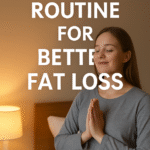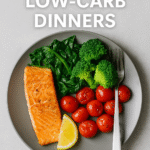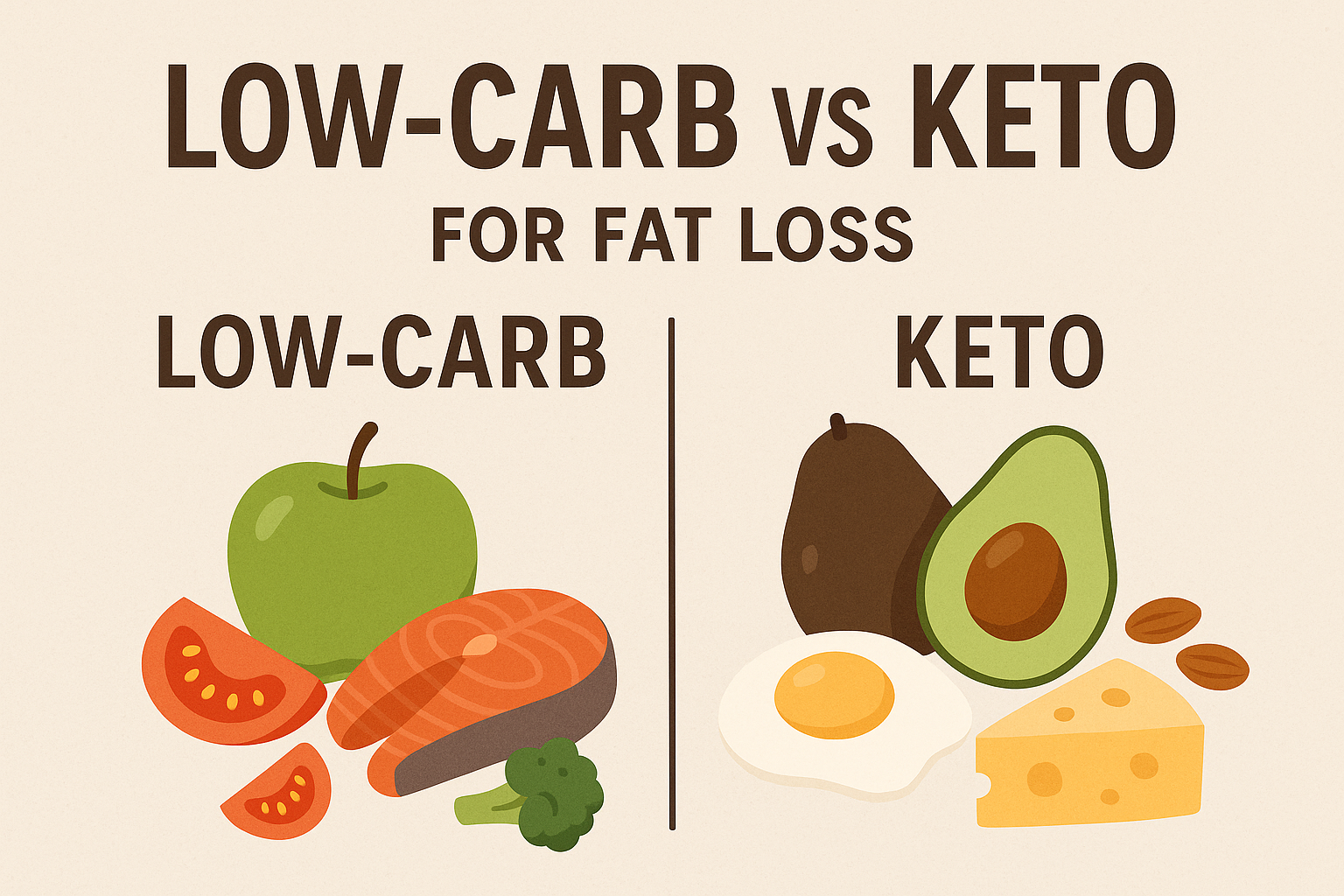If you’ve tried dieting and exercising but still can’t seem to lose weight, the missing piece might be something simple — sleep. While most people focus only on calories, carbs, or gym time, the sleep–weight loss connection is often overlooked. In reality, how well you sleep plays a powerful role in how easily your body burns fat, manages hunger, and recovers from daily stress.
In this article, we’ll explore the science behind sleep and weight loss, what happens when you don’t get enough sleep, and how to use rest as a powerful tool in your health journey.

🧠 The Science Behind Sleep and Weight Loss
Your body runs on a natural cycle called the circadian rhythm — your internal clock that regulates sleep, hormone release, metabolism, and energy use. When sleep is disrupted or insufficient, this entire system is thrown off.
Here’s how poor sleep directly impacts your ability to lose weight:
1. Hormonal Imbalance
Two major hormones related to hunger are affected by sleep:
-
Ghrelin – the “hunger hormone” that increases appetite
-
Leptin – the “satiety hormone” that signals fullness
When you don’t get enough sleep:
-
Ghrelin levels go up → You feel hungrier
-
Leptin levels go down → You feel less full
This makes you more likely to overeat or crave unhealthy snacks, especially sugar and carbs.
2. Slower Metabolism
Poor sleep slows down your resting metabolic rate (RMR) — the number of calories your body burns while at rest. Less sleep also affects your body’s ability to process glucose, increasing fat storage.
Studies show that even a few nights of sleep deprivation can lead to:
-
Insulin resistance
-
Increased fat storage
-
Reduced calorie burn
3. Cravings & Emotional Eating
When you’re sleep-deprived, your brain’s reward center becomes more active. This means you’re more likely to:
-
Reach for chips, cookies, or soda
-
Make impulsive food decisions
-
Eat for comfort, not hunger
Sleep-deprived individuals often consume 200–300 extra calories per day compared to well-rested people.
4. Lack of Energy for Exercise
Without enough rest, your physical energy and motivation drop. You may:
-
Skip workouts
-
Perform less effectively in the gym
-
Recover slowly from exercise
This makes it harder to build muscle, burn fat, and stay consistent.
🛌 How Much Sleep Do You Really Need?
According to the CDC (Centers for Disease Control and Prevention), adults should aim for:
👉 7–9 hours of quality sleep per night
Teens and younger adults may need more, while older adults may need slightly less — but quality is key.
⚖️ Weight Gain & Sleep Deprivation: Real Stats
-
People who sleep less than 6 hours per night are more likely to be overweight or obese
-
Chronic sleep deprivation is linked to type 2 diabetes, heart disease, and metabolic syndrome
-
One study found that sleep-deprived dieters lost 55% less fat even with the same calorie intake!
🌙 Best Sleep Habits to Support Weight Loss
You don’t just need more sleep — you need better sleep. Here’s how to improve both:
✅ 1. Stick to a Sleep Schedule
-
Go to bed and wake up at the same time every day (even weekends)
-
Helps your body regulate its natural rhythm
✅ 2. Create a Bedtime Routine
-
Wind down 30–60 minutes before bed
-
Activities like reading, stretching, or listening to calm music help
✅ 3. Limit Screens Before Sleep
-
Blue light from phones or TVs suppresses melatonin (your sleep hormone)
-
Avoid screens for 1 hour before bed
✅ 4. Watch Caffeine and Alcohol
-
No coffee or energy drinks after 2 PM
-
Alcohol may help you fall asleep faster but reduces sleep quality
✅ 5. Keep Your Bedroom Cool and Dark
-
Ideal sleep temperature: 60–67°F (15–19°C)
-
Use blackout curtains and keep noise to a minimum
✅ 6. Eat Light at Night
-
Avoid large meals before bed
-
Heavy or spicy foods can cause indigestion and disturb sleep
🥗 Sleep-Friendly Foods
Certain foods can help improve your sleep naturally. Try these in your evening meal or snack:
| Sleep-Friendly Foods | Why They Help |
|---|---|
| Turkey | Contains tryptophan, a sleep-promoting amino acid |
| Cherries (or cherry juice) | Natural source of melatonin |
| Oatmeal | Helps release serotonin |
| Bananas | Contains magnesium and potassium |
| Greek Yogurt | Rich in protein and calcium |
Avoid heavy, fried, sugary, or high-caffeine foods late in the day.
🧘♀️ Mind & Sleep: Stress Affects Weight Too
Stress and poor sleep go hand-in-hand. High stress increases cortisol — a hormone that can:
-
Trigger belly fat storage
-
Cause food cravings
-
Disrupt deep sleep
Tips to reduce stress before bed:
-
Deep breathing (4–7–8 technique)
-
Journaling
-
Meditation or gratitude practice
💪 Sleep + Weight Loss: A Winning Combination
Let’s recap how sleep supports weight loss:
| Sleep Benefit | Weight Loss Impact |
|---|---|
| Hormonal balance | Reduces hunger and cravings |
| Metabolic regulation | Helps burn fat more efficiently |
| Improved mood & focus | Encourages healthier choices |
| More energy for workouts | Boosts performance and consistency |
| Stress reduction | Prevents emotional eating and cortisol spikes |
📝 Final Thoughts
If you’ve hit a plateau in your weight loss journey, don’t just look at your plate or your workout — look at your pillow. Sleep is a foundational part of fat loss, and improving your sleep hygiene might be the key you’re missing.
You can’t out-train or out-diet bad sleep. So tonight, give yourself permission to rest — your body, brain, and belly will thank you.









